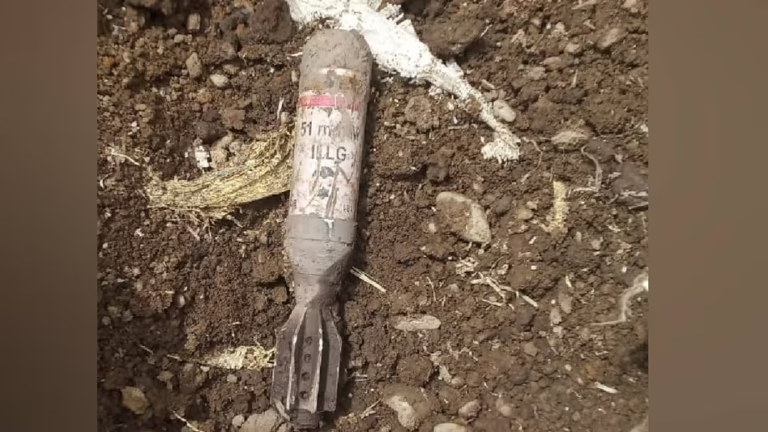‘BLOOD MONEY’ MAY BE THE ONLY OPTION TO SAVE KERALA NURSE NIMISHA PRIYA, CENTRE TELLS SC
Summary of the News
The Supreme Court of India was informed on July 14, 2025 that the Centre’s diplomatic efforts to halt the execution of Kerala nurse Nimisha Priya in Yemen have reached their limit. With her execution scheduled for July 16, the Attorney General stated that negotiating a “blood money” settlement with the victim’s family under Yemeni law appears to be the only remaining lifeline. However, the family has so far rejected offers, citing “honour.” The Court has scheduled the next hearing for July 18
Deep Dive: The Complex Case of Nimisha Priya and the Last Hope of “Blood Money”
1. Who Is Nimisha Priya?
Born in 1989 in Palakkad, Kerala, Nimisha Priya was an Indian nurse who moved to Yemen in 2008 to work at a hospital in Sanaa. In 2015, she partnered with local businessman Talal Abdo Mehdi to open a medical clinic. However, the relationship deteriorated—Talal allegedly controlled her passport, abused her, and stole clinic funds. In July 2017, she is said to have sedated him to retrieve documents; he died from an overdose. She was later convicted of murder, and in 2020 sentenced to death. Her appeals were rejected, including by Yemen’s Supreme Judicial Council in November 2023
2. Why Is the Situation Called “Complex”?
A Tale of Two Justice Systems
Yemen’s legal system combines Sharia law with tribal practices. Murder cases often invoke the concept of blood money, or diya, which allows a victim’s family to pardon an offender—if they agree to compensation.
In contrast, India follows secular criminal justice, and there’s no concept of blood money in its legal system. This makes inter-country legal intervention especially challenging.
Diplomatic Limitations
Attorney General R. Venkataramani told the Supreme Court:
“It’s a very complex issue… There’s no way we can know what’s happening [in Yemen].”
He also confirmed ongoing talks with Yemeni authorities for a temporary suspension of the execution order—yet nothing substantial has moved forward
3. Why Is Blood Money the Only Option Left?
- Legal Dead End: All Yemeni judicial appeals have failed.
- Diplomatic Ceiling: India has applied all possible channels, including reaching out to prosecutors and influential figures, but progress remains elusive
- Cultural Context: Under Sharia, the victim’s family must offer forgiveness—often tied to financial recompense.
India can negotiate, but any settlement hinges on the victim family’s agreement—a heartbreaking consideration bound by tradition and emotion rather than law
4. What Has Been Offered So Far?
The family, through the Save Nimisha Priya International Action Council, reportedly offered US $1 million (approx ₹8.6 crore) as blood money
But the victim’s kin have rejected the offer, citing “honour.” More money may not resolve the impasse—it’s a deeply emotional stand, not simply transactional
5. India’s Position So Far: What the Centre Has Done
- Supreme Court Petition
The SC heard urgent pleas and set the next hearing for July 18 - Centre’s Diplomacy
AG R. Venkataramani admitted India’s limitations but asserts that all possible actions—legal, diplomatic, and informal—have been taken - Kerala Government Engagement
CM Pinarayi Vijayan wrote to PM Modi and the MEA urging urgent steps, underlining the emotional and humanitarian dimensions - Family Efforts
Nimisha’s mother traveled to Yemen and local advocates remain in contact with the victim’s family.
Despite these efforts, no breakthrough has occurred—highlighting the complexity of cross-border legal and cultural negotiations.
6. The Supreme Court’s Response
A bench led by Justices Sandeep Mehta and Vikram Nath expressed sorrow—“very sad if she loses her life”—and set another hearing for July 18
The Court invited updates on whether blood money negotiations have progressed, giving a narrow but crucial window of recourse.
7. Understanding Blood Money in Sharia Law
- Diya is compensation paid to a victim’s family in cases of homicide. It’s recognized under Sharia and Yemeni law as a pathway to pardon.
- There’s no fixed amount—negotiations often define the sum.
- Ultimately, forgiveness is the victim family’s prerogative, and it may be rejected on moral or cultural grounds
8. What Happens Next?
- By July 16: Yemeni authorities could proceed with execution unless halted.
- By July 18: Supreme Court awaits update. It may direct the Centre to present new diplomatic options or provide clarity on stalled blood money efforts.
- If no resolution emerges, Nimisha may lose the narrow lifeline she’s been clinging to.
9. Why This Case Matters Nationally
- Expatriate Safety: Millions of Indians work abroad, often in risky zones. This case raises questions about government protection abroad.
- Legal Pluralism: It highlights clashes when Indian citizens face justice systems based on religious or tribal law.
- Diplomatic Leverage: Yemen’s unstable government and weak recognition limit India’s capacity to influence outcomes.
India must navigate sovereign limitations—symbolic interventions only go so far.
10. Emotional Stakes: More than Just a Legal Battle
It’s not just about law—it’s about a mother’s hope, a family’s grief, and an entire community’s prayers. The mention of “honour” reminds us that in cultural contexts, emotional wounds often outweigh money.
Nimisha’s story opens a window to the human face of diplomacy: a woman far from home, a family fighting with dwindling hope, and a nation watching, anxious.
11. Conclusion: A Race Against Time
As July 16 approaches, everything hinges on a single remaining lifeline: blood money. It’s a last resort—fraught with moral, cultural, and emotional hurdles beyond India’s direct control.
The Supreme Court’s next hearing on July 18 could be critical. But unless the Yemeni victim’s family changes course, Nimisha’s fate remains at the mercy of cultural traditions and a fragile negotiation.
India’s diplomatic machinery has done its best—but sometimes even the most determined efforts meet limits only cultural reconciliation can cross.
Let’s hope that empathy, not just diplomacy, finds a way.
FAQs
1. What is ‘blood money’?
Blood money (diya) is a form of compensation paid under Sharia law by the offender (or their family/government) to the victim’s family, which can result in pardon or commutation of a death sentence
2. Why can’t India directly intervene?
Yemen’s legal system is sovereign and heavily influenced by Sharia. Diplomatic leverage is limited, and India must rely on informal negotiations rather than enforceable legal measures .
3. Has blood money been offered?
Yes—around $1 million (₹8.6 crore) has been offered by Nimisha’s family via their representatives in Yemen
4. What is the Supreme Court doing?
The Supreme Court of India is tracking the case, has heard the Centre’s response, and will reconvene on July 18 for updates on blood money negotiations .
5. What options remain?
Unless Yemeni authorities or the victim’s family agree to accept diya, legal recourse in Yemen is exhausted. The remaining hope lies in cultural reconciliation or a sudden diplomatic breakthrough.



